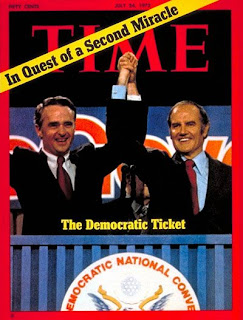This again
They identified high literature as a crucial pillar for any generation.
But they also latched on to Twitter, the website where users compress all of human experience into 140 characters. Twitter, they thought to themselves, epitomised the short attention span and info-deluge that defined the contemporary age.
So what if you put the two together? If great literature and Twitter were combined into one new form - Twitterature.Oh sweet mother of fuck, protect us from these charlatans and bullshitters. If this is a cynical cash-in then fair play to them, I just don't see why it warrants free advertising. If it is in anyway serious then things are worse that I feared. To repeat myself, this is not an original idea, it is a fun parlour game that should not be repackaged and foisted upon the gullible nor used to appeal to the worst qualities of the verbally incontinent, the vapid and the self-obsessed.
One thing that worries is the fashionable delusion in all sorts of media circles that words, language and literature must now be reduced to mere "content" – a thing that has no intrinsic merit in itself, but which can be packaged, marketed and judged on its ad-generating powers. In other words, a triumph of the bullshitters which will seriously degrade culture, literature and thought.
------
Add journalism to that list too. There are some people who give every impression that the most important thing about the Iranian revolution is that it's on Twitter. Well no it isn't actually, though it's one faddish way of getting some people's voices heard; after all, there are multiple ways in which the net has allowed information to leak out - Facebook and Fark (of all things) have got in on the act, so too YouTube.
The trouble with the tweets from Tehran is that the stew of rumour and misinformation can obscure as much as it can enlighten. (As illustrated here - note too the claim that Moldova's authorities used Twitter to sew confusion and misinformation among the protesters there). Oh and the fact that the death of the People's Pederast has overwhelmed Twitter (sorry Iranians, you're already last week's news). There is no substitute for having proper journalists, who know the territory and the people, on the ground trying to sift through the mass of claim and counter-claim and give an accurate reflection of what is really going on. (An impossible task, of course, but one can make a decent stab at it).
I wonder if this confusion between the means and ends doesn't date back to the Reformation and the role of the printing presses in spreading Protestant ideas. Without denying the importance of technology in spreading ideas, I don't think the existence of the printing press itself explains why the Lutherans succeeded where the Hussites or the Lollards (for example) failed.
In revolutions the means in which the message has been spread was never as important as the message itself. In other words, a printing press is no substitute for having a Luther, a Milton or a Jefferson to hand; or a Lenin for that matter. If the Iranian revolution doesn't have a clearer message that a random sequence of 140-character comments, I very much fear it will not succeed.
PS: The following rather illustrates the point.
British homewares retailer Habitat apologized on Wednesday after ads for the store appeared on Twitter tagged with words linked to the Iranian election crisis.
Some Twitter users became angry after the upmarket store's messages turned up in searches for topics such as "Iran" and "Mousavi," the name of Iranian presidential candidate Mir Hossein Mousavi.
Events, hijacked by bullshit merchants online.Labels: history, literature, marketing bollocks, quality journalism













